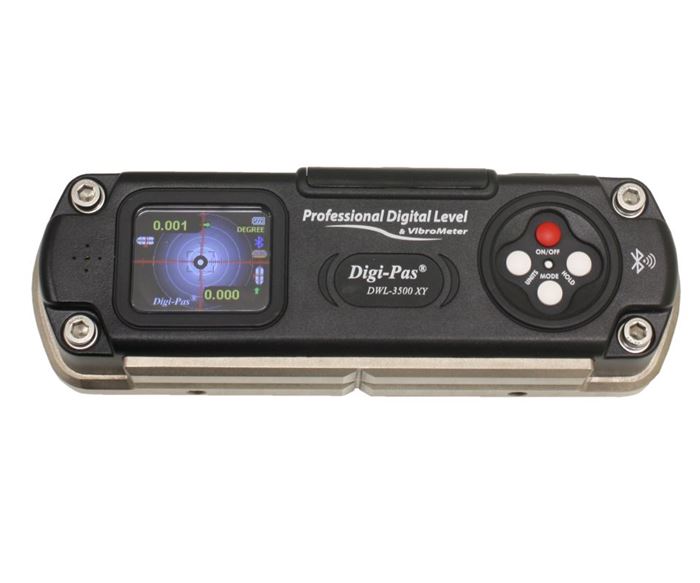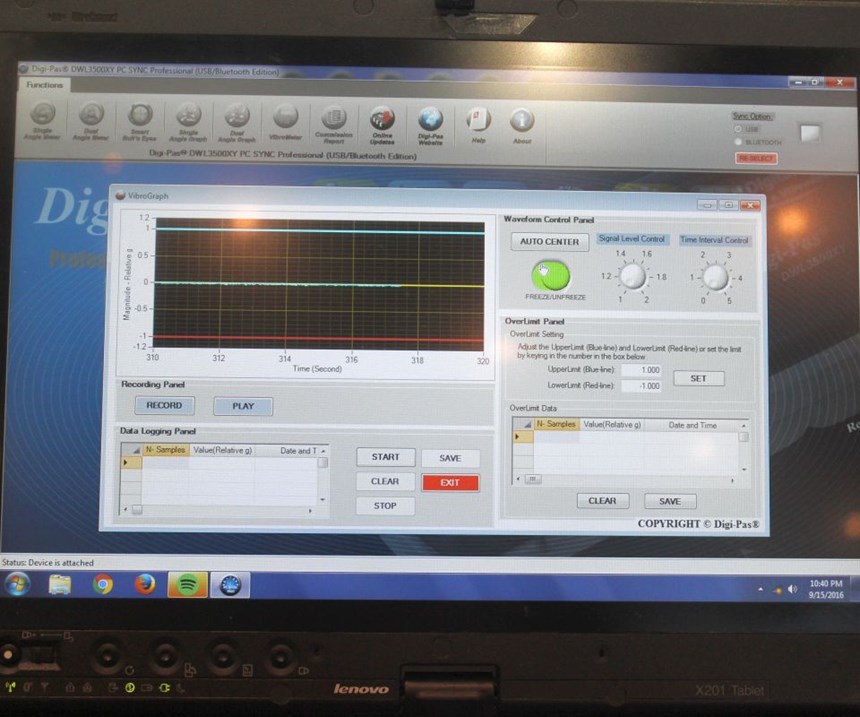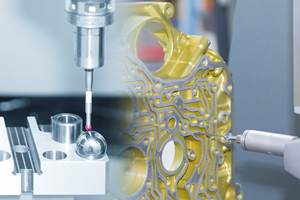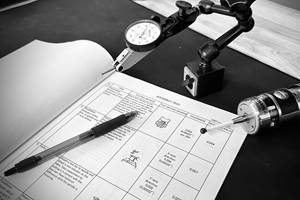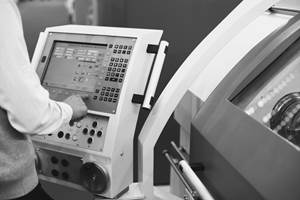Leveling Up for Machine Installation and Beyond
A digital level cut machine installation time for one builder, but its usefulness extends beyond initial setup.
Share





Machine tools are finely tuned instruments capable of achieving high levels of precision. But the machine is only as good as its setup, and the accuracy with which it is installed is just as important as its build.
Machine tool builders have specified standards for what is acceptable for an installed machine. According to Don Schmedake of Hurco, the company's machine tools must achieve squareness within 5 tenths per foot for the X, Y and Z axes.
“If the machine isn’t level, I’m not going to attain that goal,” he says. “The machine geometry will never come into spec.”
Mr. Schmedake now provides technical support for Hurco customers from the company's Indianapolis, Indiana, headquarters but recently served as a field service engineer performing machine installations across the country. During the installation process, each machine tool is leveled in the X and Y planes in nine different positions. Traditionally, technicians place two bubble (or “spirit”) levels on each position, and then adjust the machine accordingly to bring it level.
This process is slow and cumbersome, Mr. Schmedake says. Spirit levels take time to settle once they are in position, and they don't quantify how far the surface is from level making it difficult to judge how much adjustment is necessary. There are also ergonomic drawbacks, as the technician has to get up and down repeatedly to check the levels and make the adjustments. A different device the company acquired largely solved these problems, and might have applications for end users of machine tools as well.
The device is a digital level. The DWL-3500 XY level from Digi-Pas that Hurco technicians use is powered by four AAA batteries or via USB and features a digital readout and inclinometer. The digital level proved to be faster to settle than the old spirit models (according to Digi-Pas, measurement speed is less than 5 seconds), and can measure both the X and Y planes simultaneously, replacing the two levels previously needed. The company says the instrument's accuracy is ±0.001 degree between 0 and ±2.000 degrees, and ±0.003 degree at other angles. Repeatability is 0.001 degree, as is resolution.
Using a connected laptop to display data (which can also be seen on the device’s LCD screen), Mr. Schmedake didn’t have to get up and down from the floor as frequently to level a machine, and soon found that he was saving an average of four hours per installation. Bluetooth connectivity means the data can also be seen on a smartphone or tablet through an app.
Ming Yong, vice president of sales and marketing for the Digi-Pas line in North America, says the same kind of ease-of-use features make the device handy for users of machine tools as well. The company says their digital levels are regularly used by manufacturers in applications such as:
- leveling jigs and fixtures
- aligning and orienting machine components during setup or repair
- leveling CMMs
- metrology, including measurement of finished parts
The device's built-in vibrometer also makes it useful for detecting machine vibration outside of an allowable range, which may indicate worn or misaligned components. The device’s software and app can export these readings to an Excel sheet to enable tracking vibration data over time.
Related Content
Rethink Quality Control to Increase Productivity, Decrease Scrap
Verifying parts is essential to documenting quality, and there are a few best practices that can make the quality control process more efficient.
Read More4 Ways to Establish Machine Accuracy
Understanding all the things that contribute to a machine’s full potential accuracy will inform what to prioritize when fine-tuning the machine.
Read MoreHelp Operators Understand Sizing Adjustments
Even when CNCs are equipped with automatic post-process gaging systems, there are always a few important adjustments that must be done manually. Don’t take operators understanding these adjustments for granted.
Read MoreProcess Control — Leveraging Machine Shop Connectivity in Real Time
Renishaw Central, the company’s new end-to-end process control software, offers a new methodology for producing families of parts through actionable data.
Read MoreRead Next
5 Rules of Thumb for Buying CNC Machine Tools
Use these tips to carefully plan your machine tool purchases and to avoid regretting your decision later.
Read MoreSetting Up the Building Blocks for a Digital Factory
Woodward Inc. spent over a year developing an API to connect machines to its digital factory. Caron Engineering’s MiConnect has cut most of this process while also granting the shop greater access to machine information.
Read MoreBuilding Out a Foundation for Student Machinists
Autodesk and Haas have teamed up to produce an introductory course for students that covers the basics of CAD, CAM and CNC while providing them with a portfolio part.
Read More
.jpg;width=70;height=70;mode=crop)
